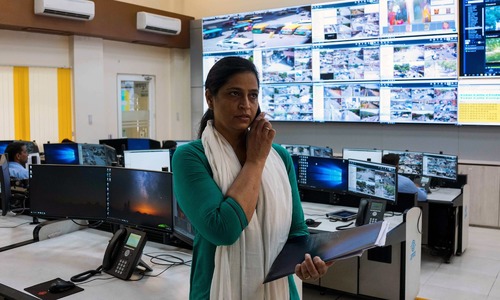Workers strike across India for labour rights, better pay

Millions of workers began a nationwide two-day strike across India on Monday to express their anger at the government’s economic policies and to back demands for improved rights for industrial workers, employees and farmers.
About a dozen of the country’s labour unions that have organised the strike want the government to provide universal social security cover for workers in the vast unorganised sector, hike the minimum wage under its flagship employment guarantee programme and stop the privatisation of public sector banks.
The strikers are also demanding the government halt its plans to monetise state assets.
Prime Minister Narendra Modi’s government says privatising some state-owned banks would overhaul the banking industry and that the asset monetisation model will help raise money to spur economic growth.
All Indian Trade Union Congress, one of the largest trade unions in the country, said it was expecting more than 200 million formal and informal workers to join the strike. Demonstrations were planned in New Delhi, Mumbai, Kolkata and other major cities.
The Bharatiya Mazdoor Sangh, an important trade union affiliated with the ruling Bharatiya Janata Party, said it won’t be participating in the strike, calling it “politically motivated”.
Essential services related to banking, transportation, railways and electricity are likely to be impacted in several states due to the strike. A number of public sector banks, including India’s largest lender, the state-run State Bank of India, have said that banking services may be affected because many employees are expected to participate in the strike.
India’s economy has bounced back after experiencing a major blow during the first two years of the pandemic. But many jobs have disappeared, with the unemployment rate rising to eight per cent in December.
Modi’s government last year grappled with huge farmer protests that demanded a complete repeal of the controversial agriculture laws it had billed as necessary reforms.
The year-long protests by farmers, who feared the laws would dramatically reduce their incomes, forced Modi to make a rare retreat just ahead of the crucial state elections that his party eventually won.













































